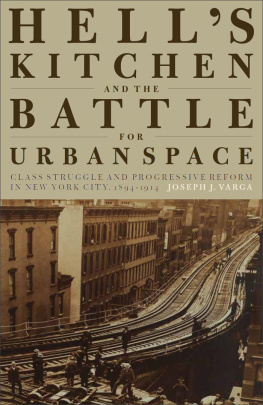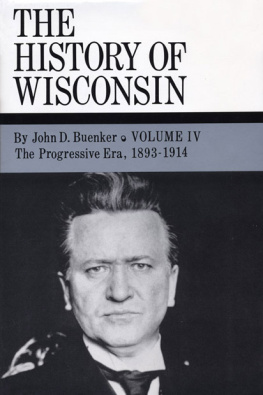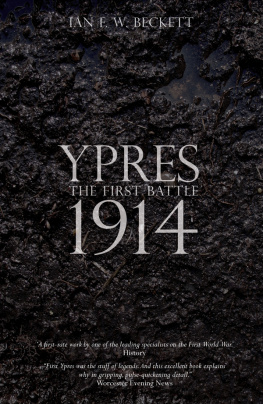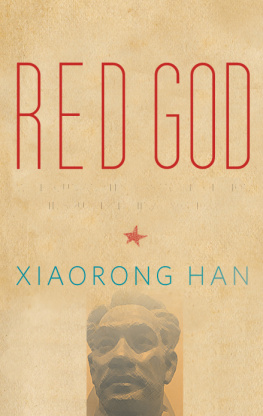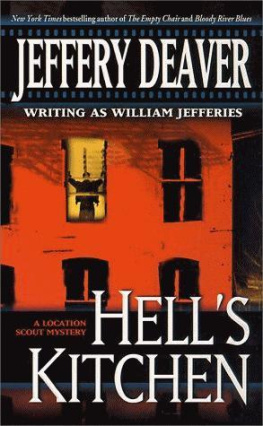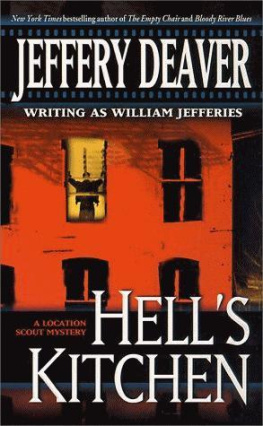Thank you for buying this ebook, published by NYU Press.
Sign up for our e-newsletters to receive information about forthcoming books, special discounts, and more!
Sign Up!
About NYU Press
A publisher of original scholarship since its founding in 1916, New York University Press Produces more than 100 new books each year, with a backlist of 3,000 titles in print. Working across the humanities and social sciences, NYU Press has award-winning lists in sociology, law, cultural and American studies, religion, American history, anthropology, politics, criminology, media and communication, literary studies, and psychology.
Hells Kitchen and the Battle for Urban Space
Copyright 2013 by Joseph J. Varga
All Rights Reserved
Library of Congress Cataloging-in-Publication Data
Varga, Joseph J.
Hells Kitchen and the battle for urban space : class struggle and progressive reform in New York City 18941914 / Joseph J. Varga.
pages cm
Includes bibliographical references and index.
ISBN 978-1-58367-349-2 (cloth : alk. paper) ISBN 978-1-58367-348-5 (pbk. : alk. paper) 1. Hells Kitchen (New York, N.Y.)History. 2. New York (N.Y.)History18981951. 3. New York (N.Y.)Politics and government18981951. 4. City planningSocial aspectsNew York (State)New York. 5. City planningPolitical aspectsNew York (State)New York. 6. Social structureNew York (State)New YorkHistory. 7. Social classesNew York (State)New YorkHistory. 8. Progressivism (United States politics)History. I. Title.
F128.68.H45V37 2013
974.7041dc23
2013019260
Monthly Review Press
146 West 29th Street, Suite 6W
New York, New York 10001
www.monthlyreview.org
5 4 3 2 1
Acknowledgments
This project began as research with Diane Davis at the New School for Social Researchs Graduate Faculty, sometime around 2003. Diane inspired me to think like a sociologist, and to dig into the fabric of the city. But it really started well before that, with my own interest in the working-class communities I grew up with, and the immigrants and workers in places like New Brunswick and South River, New Jersey, who chased their own version of the American Dream in space not of their own choosing. I was fascinated with how working folks used their collective power to build communities, defend their common interests, and fight for a better life. I learned in my work life the important battles that happen on the shop floor, when workers demand their rights and struggle for a better life. In that regard, this book is in part a tribute to all my coworkers in every job, but especially the crew at High Grade Beverage, Teamsters 701, who taught me lasting lessons in how workers control space, and made me laugh while doing it. Heres to you, Cuz, Richie, Carmen, and all the people who work every day to keep it all together.
In the six-plus years that I spent studying Hells Kitchen, poring over documents, scouring resources, and walking its streets, I have leaned upon, and at times, annoyed many people. While I have always tried to keep my object at an objective distance, a mere mention of hell, kitchen, middle, west, or even Manhattan, would make me spin my head around. The kind staffs at the New York City Department of Records library, the New York Public Library Branch at Eleventh Avenue and 48th Street, the Hartley House Settlement, and the McManus Democratic Club, among others, were always ready to indulge my often futile searches. Thanks to Brooklyn Colleges Edwin Burrows and Jocelyn Wills for pointing to archives I overlooked, and to the too-numerous-to-name army of adjunct faculty in the BC History Department who listened to my endless reiterations of the importance of spatial history, and for their conviviality. Thanks to Andrew Arato, Vickie Hattam, and Jos Casanova for trying to teach me to be rigorous in my application of social theory, though Im not sure I ever fully absorbed the message. A special thanks goes to two people no longer with us, Chuck Tilly and Ari Zolberg, who for me were models of teaching, scholarship, and humanity. This project never would have come close to fruition without Oz Frankel, whose sense of humor, and sense of history, both inspired and constrained. Thanks also to my Indiana University colleagues Paul Mishler, Gerrie Casey, Thandabantu Iverson, Marquita Walker, and Bill Mello for reading and keeping me sharp, and Irene Quiero-Tajali, Lynn Duggan, Rae Sovereign, and Mark Crouch for general support and encouragement.
I am especially indebted to Michal Yates and the crew at Monthly Review, who had confidence in this project. Thanks to Martin Paddio and Scott Borchert for work on the manuscript, and to Erin Clermont, who really turned my sometimes aimless musings into workable prose.
Thanks to Peter Nekola and Laura Roush for being readers, critics, advisors, and, mostly, for being friends when the world seemed bleak. I love you both. And for my sanity, I must send a shout-out to Joe Kneafsy and Mark Beebe and good friends old and new in Brooklyn and Bloomington. And of course, thanks to my wonderful mom, Nancy Ann Varga, and to Al, Kathy, Scott, Barbara, and Marshall for their limitless love and patience. Much of the inspiration for this book, and for all the work I try to do with and for working folks, is inspired by my dad, Julius Varga. He came to this country at 17, after years as a Displaced Person, arriving with little education, very little knowledge of English, from a childhood ripped apart by war. He sought his own version of the American Dream working on a machine in a factory. Im not sure if he ever realized his dream before his death in 1987, but he did raise three boys, loved my mom, and did the best he could, which is all we can ask. I think he would be happy with this book, but probably think I was getting uppity, and knock me down a peg. This is for you, Dad.
I would thank my everything, my love, my Rebekah, too, but she always already knows.
INTRODUCTION
A Death in the Kitchen
ON APRIL 23, 2008, two men, David Daloia and James OHare, were cleared in a New York City court of all criminal charges in a case involving felony fraud, a dead body, and an obscure 1954 Department of Health law requiring burial or incineration following a reasonable time after death. In a case that delighted New York Citys twin tabloids, the New York Post and the Daily News, Daloia and OHare had been arrested at a Pay-O-Matic check-cashing outlet for attempting to cash the Social Security check of their then-deceased friend, Virgillio Cintron. Claiming that they were unaware that Cintron had died, and having cashed checks for the incapacitated Parkinsons victim in the past, the pair, dubbed Dumb and Dumber by both newspapers, had dressed Cintrons corpse, signed his check, and wheeled his body in a desk chair from the Manhattan apartment Cintron shared with OHare on 52nd Street to the Pay-O-Matic at Ninth Avenue. The pair attracted curious onlookers, and caught the attention of a New York Police Department detective eating his lunch across from the check-cashing store. While both the Post and the Daily News played on the alleged stupidity of the crime, and the clear marginality of the defendants, the more staid New York Times highlighted the case as a throwback, a vestige of the old Hells Kitchen in the rapidly restructuring Clinton District. Charges against the pair were dropped when a coroner could not determine a precise time of death, allowing both men to plead that they believed Cintron was alive on their trip. Virgillio Cintron was eventually buried through the intervention of a local funeral home, as neither he nor his family could afford interment. The check that OHare and Daloia attempted to cash was valued at $335.

